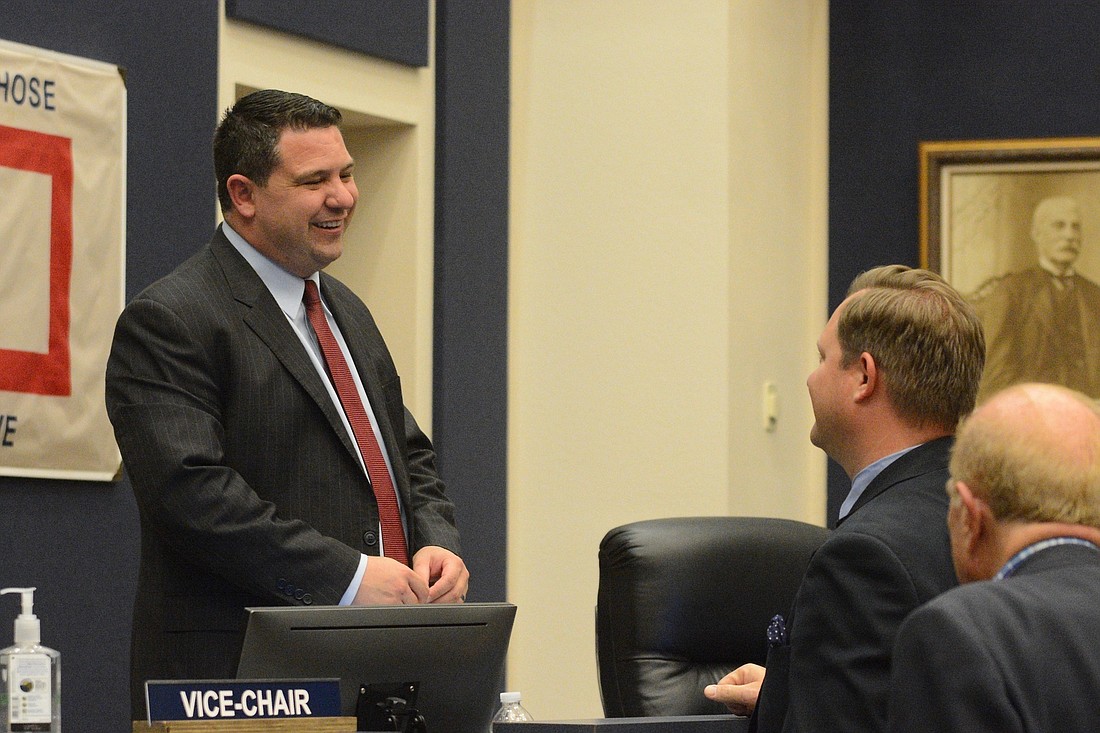
Florida Sen. Travis Hutson has filed legislation to change policy to promote affordable housing.
Hutson, who represents District 7, filed Senate Bill 998 on Nov. 19 to allow local government to approve affordable housing development on any property zoned residential, commercial or industrial and allow the waiver of fees to make housing affordable.
Hutson, who represents St. Johns, Flagler and the northern portion of Volusia counties, said Dec. 6 the goal is to better use Sadowski Trust Fund dollars by stimulating their use through policy changes.
The William E. Sadowski Affordable Housing Trust Fund, enacted in 1992 by the William E. Sadowski Act, receives money from a portion of the transfer fee on all real property transactions, intended solely for affordable housing.
That has not been the case, Hutson said, as some of the money has been diverted for other purposes.
“Looking at the Sadowski Trust Fund dollars, ultimately not 100% has been sent back down to the local government through the budgetary process. Let’s look at the policy side and see how we can stretch the dollars further,” he said.
During the summer and fall, Hutson met with local government officials, Realtors, homebuilders who develop affordable housing, and rental assistance representatives to gather ideas to make the system more flexible to be “able to spend the dollars more freely.”
Hutson said that local government is required by statute to assess fees on developments equally, without the ability to waive fees for affordable housing projects.
If the government wants to reduce fees for an affordable housing development, then the government needs to make up the difference from its own funds.
The bill allows flexibility for local governments to pick and choose which fees, costs and utility connections they may want to exempt for a specific housing project defined as affordable housing, he said.
The bill affects both new construction and rehabilitation.
He said a 1970s-era apartment complex that needs to be rehabilitated or a failed commercial shopping center could be converted into affordable housing.
“We are going to preempt that scenario” of requiring rezoning and land use amendments, he said.
“Local government cannot just say no because it is commercial. It promotes infill development,” Hutson said.
The legislation allows residential, commercial or industrial-zoned parcels to be used for affordable housing as long as the development meets the local criteria for residential development, such as egress, parking, setbacks and landscaping.
“The ability to say no is still there” by requiring residential development criteria, he said.
The bill also requires local government to allow accessory dwelling units that will be rentable at an affordable rate in any residentially zoned area, to reduce restrictions and requirements for mobile homes, to revise and promote funding sources, and to give priority consideration for affordable developments, programs and incentives.
Hutson said the current bill is comprehensive and the details need to be worked out. “It’s going to change 15 different times. We will be tweaking and defining as we go forward.”
The next step is for a House sponsor in the Florida Legislature to support the bill.
“There were several interested but no one has hit the file button,” he said. “Without that being filed in the House we will have a problem making it become law.”
Once filed, there would be three or four committee reviews on each side of the aisle.
“After that we will sit down with all interested parties and work out the details for an amendment addressing 90% of the concerns on each specific issue,” Hutson said.
“The goal is to keep moving it forward and have people understand that we have something that we all agree with. If we can’t agree, then the bill won’t go anywhere,” he said.
Hutson said the House must file by Jan. 13, the start of the next session. Bills typically must be heard in the first committee in the first four weeks of the legislative session or they drop off.
Hutson said if that happens, the bill can be modified and introduced in the next session.
“This is a comprehensive bill. I have done this with other comprehensive bills, which have taken two to three years to come to fruition,” he said.
“This is our first stab at it. While I am optimistic we will get pretty far, there is a possibility this may be a couple years to try and get it all worked out.”